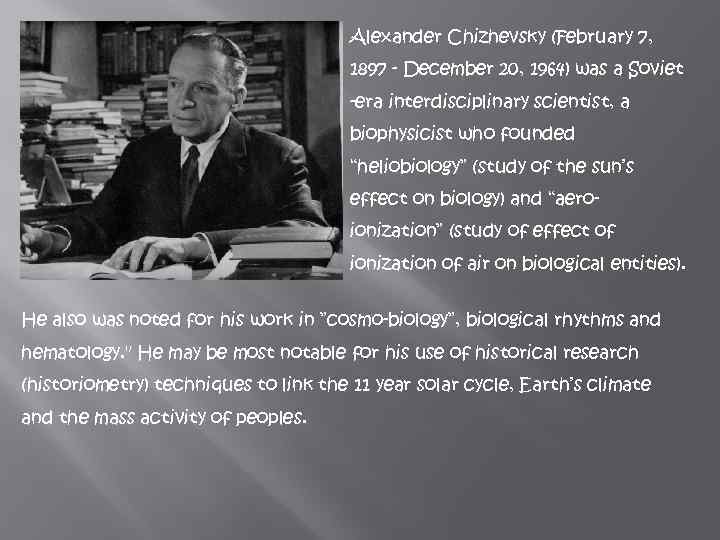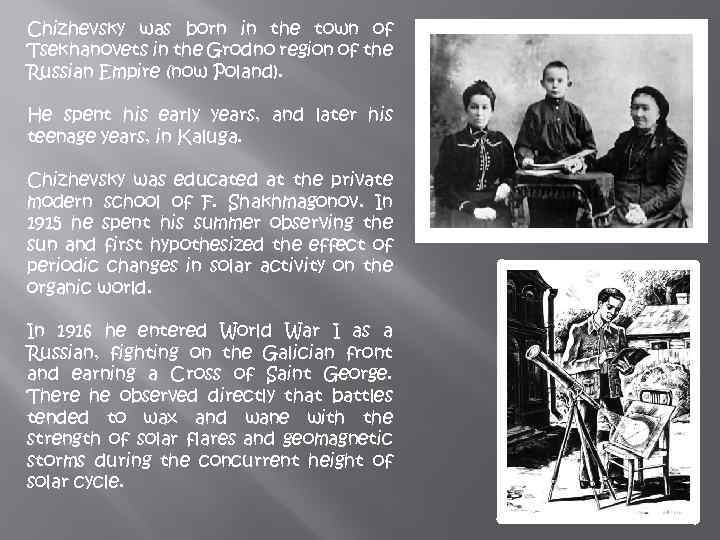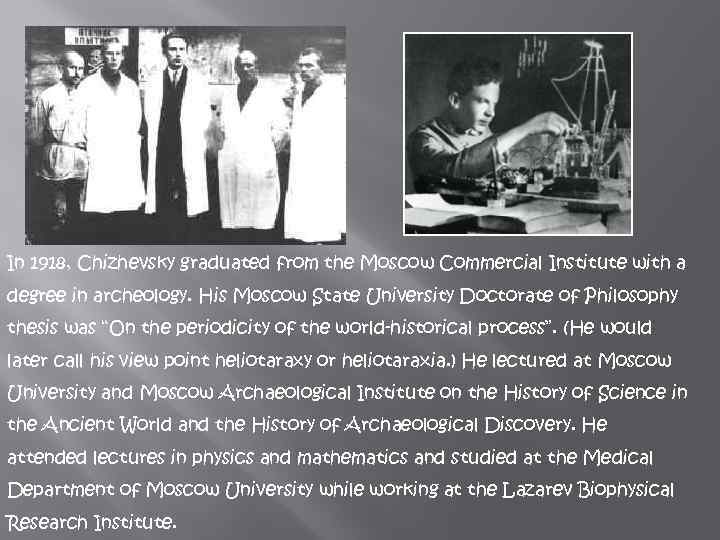Зайцева М..pptx
- Количество слайдов: 3

Alexander Chizhevsky (February 7, 1897 - December 20, 1964) was a Soviet -era interdisciplinary scientist, a biophysicist who founded “heliobiology” (study of the sun’s effect on biology) and “aeroionization” (study of effect of ionization of air on biological entities). He also was noted for his work in ”cosmo-biology”, biological rhythms and hematology. " He may be most notable for his use of historical research (historiometry) techniques to link the 11 year solar cycle, Earth’s climate and the mass activity of peoples.

Chizhevsky was born in the town of Tsekhanovets in the Grodno region of the Russian Empire (now Poland). He spent his early years, and later his teenage years, in Kaluga. Chizhevsky was educated at the private modern school of F. Shakhmagonov. In 1915 he spent his summer observing the sun and first hypothesized the effect of periodic changes in solar activity on the organic world. In 1916 he entered World War I as a Russian, fighting on the Galician front and earning a Cross of Saint George. There he observed directly that battles tended to wax and wane with the strength of solar flares and geomagnetic storms during the concurrent height of solar cycle.

In 1918, Chizhevsky graduated from the Moscow Commercial Institute with a degree in archeology. His Moscow State University Doctorate of Philosophy thesis was “On the periodicity of the world-historical process”. (He would later call his view point heliotaraxy or heliotaraxia. ) He lectured at Moscow University and Moscow Archaeological Institute on the History of Science in the Ancient World and the History of Archaeological Discovery. He attended lectures in physics and mathematics and studied at the Medical Department of Moscow University while working at the Lazarev Biophysical Research Institute.
Зайцева М..pptx